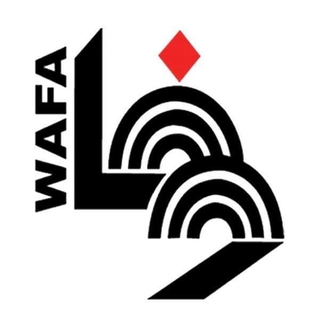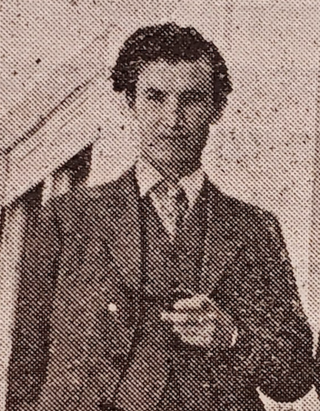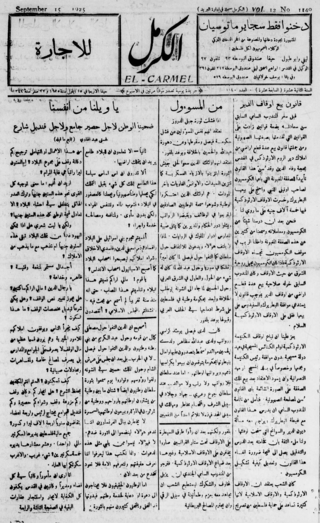Related Research Articles

Prior to the rise of nationalism during the decline of the Ottoman Empire, the term Palestinian referred to any person born in or living in Palestine, regardless of their ethnic, cultural, linguistic, and religious affiliations. During the British Mandate over Palestine, the term "Palestinian" referred to any person legally considered to be a citizen of Mandatory Palestine as defined in the 1925 Citizenship Order.

Wafa, also referred to in English as the Palestine News Agency and the Palestinian News & Info Agency, is the official state-run news agency of the Palestinian National Authority (PNA). Before the formation of the PNA in 1994, Wafa was the official news agency of the Palestine Liberation Organization.

The Independence Party of Palestine was an Arab nationalist political party established on 13 August 1932 in Palestine during the British Mandate. The party was founded by Muhammad Izzat Darwaza, and the other founders of the party were Fahmi al-Abboushi, Mu'in al-Madi, Akram Zu'aytir, ‘Ajaj Nuwayhid, Rashid al-Hajj Ibrahim, Subhi al-Khadra, and Salim Salamah. The party did not achieve a large membership but Awni Abd al-Hadi, through his role as private secretary to Amir Feisal in Damascus between 1918-1920, had good relations with many senior leaders across the Arab World.

The Institute for Palestine Studies (IPS) is the oldest independent nonprofit public service research institute in the Arab world. It was established and incorporated in Beirut, Lebanon, in 1963 and has since served as a model for other such institutes in the region. It is the only institute in the world solely concerned with analyzing and documenting Palestinian affairs and the Arab–Israeli conflict. It also publishes scholarly journals and has published over 600 books, monographs, and documentary collections in English, Arabic and French—as well as its renowned quarterly academic journals: Journal of Palestine Studies, Jerusalem Quarterly, and Majallat al-Dirasat al-Filistiniyyah. IPS's Library in Beirut is the largest in the Arab world specializing in Palestinian affairs, the Arab–Israeli conflict, and Judaica.

Kamal Butros Nasser was a Palestinian political leader, writer and poet. In the early 1970s, Nasser was a spokesman for the Palestinian Liberation Organization.

Rashid Ismail Khalidi is a Palestinian-American historian of the Middle East and the Edward Said Professor of Modern Arab Studies at Columbia University. He served as editor of the Journal of Palestine Studies from 2002 until 2020, when he became co-editor with Sherene Seikaly.
Ibrahim Abu-Lughod was a Palestinian academic, characterised by Edward Said as "Palestine's foremost academic and intellectual" and by Rashid Khalidi as one of the first Arab-American scholars to have a really serious effect on the way the Middle East is portrayed in political science and in America". His student Deborah J. Gerner wrote that he "took on the challenge of interpreting U.S. politics and society for the Palestinian community as well as eloquently articulating Palestinian aspirations to the rest of the world."
The Journal of Palestine Studies (JPS) is a quarterly peer-reviewed academic journal which has been published since 1971. It is published by Taylor and Francis on behalf of the Institute for Palestine Studies.
The American Task Force on Palestine (ATFP) is an organization founded in 2003 to advocate that it is in the American national interest to promote an end to the Palestinian–Israeli conflict through the creation of a Palestinian state alongside Israel. It has not been active since 2016.

Walid Khalidi is a Palestinian historian who has written extensively on the Palestinian exodus. He is a co-founder of the Institute for Palestine Studies, established in Beirut in December 1963 as an independent research and publishing center focusing on the Palestine problem and the Arab–Israeli conflict, and was its general secretary until 2016.
The Palestinian people are an ethnonational group with family origins in the region of Palestine. Since 1964, they have been referred to as Palestinians, but before that they were usually referred to as Palestinian Arabs. During the period of the British Mandate, the term Palestinian was also used to describe the Jewish community living in Palestine.
The Arab American Action Network (AAAN) is a Chicago-based community center founded in 1995 to strengthen the Arab immigrant and Arab American communities in the Chicago area by building their capacity to be active agents for positive social change. As a grassroots nonprofit, its strategies include community organizing, advocacy, education, providing social services, leadership development, cultural outreach, and forging productive relationships with other communities.

Al-Karmil or El-Carmel is a bi-weekly Arabic-language newspaper founded toward the end of Ottoman imperial rule in Palestine. Named for Mount Carmel in the Haifa district, the first issue was published in December 1908, with the stated purpose of "opposing Zionist colonization".
Ismail Khalidi is a Palestinian/Lebanese American playwright, screenwriter and theater director whose work tackles the history of Palestine and the modern Middle East, as well as wider themes of race, colonialism, displacement and war. He is best known for the plays Tennis in Nablus (2010) and Truth Serum Blues (2005) and the critically-acclaimedReturning to Haifa, which premiered in London in 2018. Tennis in Nablus received two graduate student Kennedy Center Honors in 2008 while he was still at NYU, the Mark Twain Comedy Playwriting Award and the Quest for Peace Playwriting Award. Since then his plays have been produced and presented internationally and published in half a dozen anthologies.
Tarif Khalidi is a Palestinian historian who now holds the Shaykh Zayid Chair in Islamic and Arabic Studies at the American University of Beirut in Lebanon.
Al-Khaldi, also spelled Al Khalidi is the last name given to descendants of the Bani Khalid. The tribe traditionally claims descent from Khalid ibn al-Walid, a senior companion of the Islamic prophet Muhammad and esteemed general who was crucial in the Islamic Conquest of Persia and Syria. This claim has been questioned by Arab genealogists who have suggested that the tribe may descend from his relatives from Banu Makhzum and not from Khalid himself, alternatively, they have largely been attributed to. The tribe has historically been powerful in the Arabian Peninsula, having ruled Southern Iraq, Kuwait, and Eastern Arabia after expelling Ottoman and Portuguese forces in 1670. After their conflict and fall to the Emirate of Diriyah, many Khalidis scattered to Iraq and the Levant, where many of them remain to this day. The Khalidis were reinstated in power by the Ottomans after the deposition of the first Saudi State in the early 19th century, but the Saudis would quickly rise again and permanently remove them from power. Today the overwhelming majority of the descendants of the tribe live in Saudi Arabia as well as Kuwait, Qatar, Oman, Lebanon, Iraq, Jordan, and Palestine.

Palestinian nationalism is the national movement of the Palestinian people that espouses self-determination and sovereignty over the region of Palestine. Originally formed in the early 20th century in opposition to Zionism, Palestinian nationalism later internationalized and attached itself to other ideologies; it has thus rejected the occupation of the Palestinian territories by the government of Israel since the 1967 Six-Day War. Palestinian nationalists often draw upon broader political traditions in their ideology, such as Arab socialism and ethnic nationalism in the context of Muslim religious nationalism. Related beliefs have shaped the government of Palestine and continue to do so.

The Hundred Years' War on Palestine: A History of Settler Colonialism and Resistance, 1917–2017 is a 2020 book by Rashid Khalidi, in which the author describes the Zionist claim to Palestine in the century spanning 1917–2017 as late settler colonialism and an instrument of British and then later American imperialism, doing so by focusing on a series of six major episodes the author characterizes as "declarations of war" on the Palestinian people. In the book, Khalidi—historian and Edward Said Professor of Modern Arab Studies at Columbia University—argues that the struggle in Palestine should be understood, not as one between two equal national movements fighting over the same land, but rather as "a colonial war waged against the indigenous population, by a variety of parties, to force them to relinquish their homeland to another people against their will."

The Iron Cage: The Story of the Palestinian Struggle for Statehood is a 2006 book by Rashid Khalidi, in which the author explores the historical and political context of Palestinian efforts to achieve statehood. The book focuses on the context for current crisis in the region by focusing on the period of the British Mandate (1920–1948).
References
- ↑ "Mona Khalidi". SIPA Staff. Columbia University. 2006. Retrieved 2008-03-12.
- 1 2 "Rashid Khalidi's Balancing Act; The Middle-East scholar courts controversy with his Palestinian advocacy," By EVAN R. GOLDSTEIN, Chronicle of Higher Education, March 6, 2009,
- ↑ Communications at the Crossroads: The Gender Gap Connection, by Ramona R. Rush, Donna Allen - Language Arts & Disciplines, Ablex Pub. Corp, 1989, p. 232.
- ↑ http://www.illinoislegaladvocate.org/index. cfm?fuseaction=home.dsp_content&contentID=3805
- ↑ Mideast Parley Takes Ugly Turn At Columbia U., Sol Stern and Fred Siegel, New York Sun, February 4, 2005